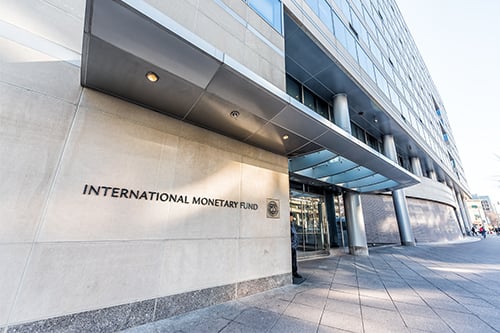The International Monetary Fund (IMF) is examining the impact of climate on the world's financial markets and whether it is priced into market valuations

The International Monetary Fund (IMF) is examining the impact of climate on the world's financial markets and whether it is priced into market valuations, the head of the global lender's markets division said.
"We are doing work on the pricing of climate risks and to what extent it is priced into stock and bond markets," Tobias Adrian, financial counsellor and director of the IMF's monetary and capital markets department, told Reuters. "We are going to look at stock markets country by country, then by sector."
The financial cost of climate change was the subject of many discussions at the IMF during its fall meetings this week.
"People are more and more aware of this—there's a certain urge around climate that is new," Adrian said. "It's very hopeful that people focus on it, but the reason they focus is that they're worried. The fact that this really has become a big topic at the IMF speaks for itself."
Adrian said that to some economies, climate poses a short-term risk. However, to most economies, the risks are long term.
One of those risks is to real estate markets and rising prices in climate resilient areas, places that aren’t likely to be impacted by rising seas, melting snow, or raging fires. As coastal areas with high asset values disappear, for example, the locations further inland or at higher elevations will become more expensive and unattainable for low-income and/or first-time buyers. A recent study used the term “climate gentrification” to describe the process whereby more affluent residents displace the low-income people in a particular neighbourhood, with the added element of climate as a factor.
Toronto and Vancouver in particular are at risk because if and when climate events occur, these markets will experience a sizeable loss in property value, along with a significant disruption to economic productivity, not to mention insurance payouts. Insured damage for severe weather events across the country reached $1.9 billion in 2018, according to Catastrophe Indices and Quantification Inc.
“Beyond increased insurance costs, property value impacts from climate risk can also mean a loss in value, loss of use and rent, increased costs for maintenance and repair, increases in property taxes related to municipal resilience and recovery investments as well as increased costs for higher risk mortgages,” writes Chris Chopik in Corporate Knights. “Overall, real estate with a higher climate risk will have a higher TMI (Taxes, Maintenance and Insurance) cost than a low risk property.”
One solution to that particular problem, Chopik suggests, is a Real Estate Climate Risk Index, a disclosure tool that offers something like a walk score rating for the cost of living or the total cost of ownership, including any devaluation associated both regionally and in regard to a specific property.
As the effects of climate change continue to become apparent around the world, both local and global solutions are being put in place to minimize disruption as much as possible.



